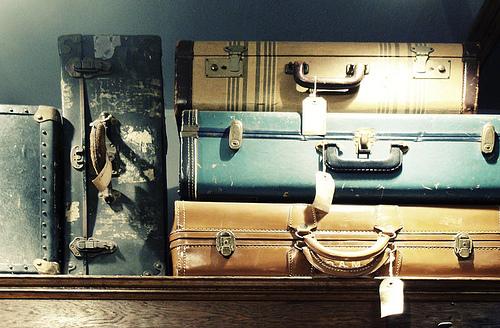Originally published 1 July 2015. Picked by Amelia Long.
Below is an extract from ASPI’s publication Gen Y jihadists: preventing radicalisation in Australia, launched 30 June 2015.
In 2014, the Terrorism Research and Analysis Consortium estimated that as many as 15% of ISIL’s foreign recruits could be female, and that up to 200 women from at least 14 different countries had travelled to Iraq and Syria to join the group. By March 2015, the number of Western women known to have joined ISIL was estimated to have risen to around 550, and women may account for nearly one-fifth of all foreign recruits.
In an address to the Australian Parliament in February 2015, Foreign Minister Julie Bishop advised that up to 40 of the 550 or so Western women taking part in or supporting terrorist activities in Syria and Iraq are Australian.
The involvement of Western women in jihadist activities isn’t new. Samantha Lewthwaite (also known as the ‘White Widow’), the British wife of one the perpetrators of the 2005 London bombings, is the most wanted female terrorist suspect in the world. Muriel Degauque, a 38-year-old Belgian woman, became Europe’s first female suicide bomber when she attacked a police patrol in Iraq in November 2005. And American Colleen LaRose, known as ‘Jihad Jane’, is currently serving time in the US for plotting to kill a Swedish cartoonist who satirised the prophet Mohammed.
More recently, Frenchwoman Hayat Boumeddine came to international attention after her husband, Amedy Coulibaly, killed a policewoman and four people in a Parisian kosher grocery store in an attack allegedly coordinated with the Charlie Hebdo gunmen. Boumeddine, believed to now be in Syria, recently featured in a French language ISIL propaganda magazine praising the actions of her husband and calling for others to join her.
Sophisticated and targeted recruitment campaigns developed by groups such as ISIL are a major factor in the movement of radicalised Western women to the Middle East. Mia Bloom, author of Bombshell: women and terrorism, notes that ISIL and similar groups attract women and girls through social media platforms, including Facebook, Twitter and Tumblr.
Bloom explains that women such as Aqsa Mahmood, a 20-year-old Briton who travelled to Syria in 2013, and 21-year-old Australian Zehra Duman, widow of Mahmoud Abdullatif and family friend of Khaled Sharrouf, have become spokeswomen in ISIL’s recruitment campaigns. They use social media to entice vulnerable Muslim women with tales of a utopian existence and spiritual rewards.
Duman has painted a romanticised picture of life in the Islamic State that reflects the descriptions of male recruits. Despite being widowed, she took to the internet to celebrate her husband’s ‘martyrdom’ and to ask others to make the same sacrifice. She also posts pictures of herself and other women clad in full Islamic dress and brandishing AK-47s. In one photo, Duman and three other women pose on top of a new BMW.
According to one commentator, the online ‘peer-to-peer … girl-to-girl’ accounts of women such as Aqsa Mahmood and Zehra Duman have created a ‘jihadi girl power subculture’, in which becoming a ‘Caliphette’ is empowering.
The motivations of women who pledge allegiance to groups such as ISIL vary. Like their male counterparts, some do so out of a desire for adventure, while others are motivated by a sense of inequality, alienation or Islamic duty.
A report by the UK-based Institute for Strategic Dialogue suggests that there are three primary reasons driving women to travel to Syria and Iraq to join groups such as ISIL. The first is the belief that Muslims across the world are oppressed by non-believers. Traveling to Syria and Iraq to join the newly created caliphate allows these women to join a society which, according to their ideology, is in direct contrast to the ‘oppressive’ West. The second rationale put forward is the belief that in joining the caliphate they are part of establishing an ‘ideologically pure state’, and by fulfilling a female role—as mother, nurse or teacher—they can also contribute to the state-building effort. The final motivation is the belief that there’s a religious duty to support the caliphate; in return, a place in heaven is guaranteed.
The key role for women in the Islamic State is as caregivers. As a result, most women travelling to Syria and Iraq marry fighters, if they haven’t done so already, and quickly take up domestic roles. A document released this year by one of ISIL’s media arms, titled Women of the Islamic State: a manifesto on women by the Al-Khanssaa Brigade, confirms the primarily domestic role of women in the caliphate. The main emphasis of the manifesto is on motherly duties and familial support.
Not all women take up purely domestic roles, at least not initially. In a seemingly unusual step for ISIL, the all-female armed Al-Khanssaa Brigade has been established in the stronghold of Raqqah. The brigade is made up of single women aged between 18 and 25 and is thought to include a high number of Western women. Its role is to enforce sharia law dress codes and perform searches of women at checkpoints. The brigade also conducts patrols, looking out for inappropriate mixing of men and women or engagement with Western culture.
